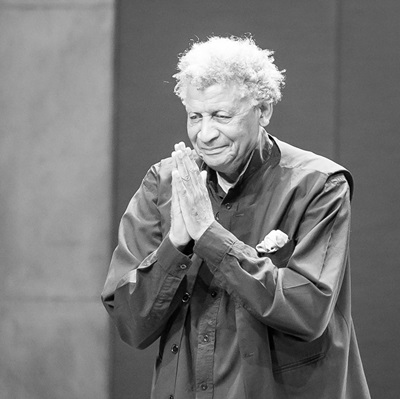.
.
“I Married a Socialist” was a short-listed entry in our recently concluded 64th Short Fiction Contest, and is published with the consent of the author.
.
.
___
.
.
photo via pexels.com

.
I Married a Socialist
by J.B. Cohen
,
…..He answered my personal ad: “Classy rebel wishes to meet man of principle.” In the 80’s, it wasn’t normal to find love through advertisements, so I kept my effort a secret. At our first encounter in an Indian restaurant, he said. “I’m not sure if my principles are the right ones. You’re likely to find me at socialist meetings in church basements.” Though I was just a run of the mill, east coast liberal, I was over forty, so I decided to give him a chance. In fact, his commitment to left wing causes intrigued me; I wanted to hear more.
…..Like me he’d been an English major in college, but despite having literary giants like John Barth and Leslie Fiedler as teachers, he’d found his professors disappointingly apolitical.
…..“I doubt that most had ever done a real day’s work,” he told me. When he solicited advice about activism, one cool prof wearing jeans and elbow patch sports coat, shook his head: “We’re all going to hell anyway; trying to change things is hopeless.”
…..Unlike him, I admired my professors and decided to become one — my goal: to teach at a small New England college. When we met, I was living my dream. Though his hard-working middle-class parents had never discussed current events, he was passionately against the Vietnam war. In college, he’d searched for an alternative to Students for a Democratic Society (SDS) after attending their meetings. They seemed totally disorganized: “just loud mouths advocating violence,”— too immature for his taste. I, too, was anti-war, weren’t we all back then? I’d marched in Washington and held signs during Saturday vigils but it didn’t dominate my life. I ‘d been too busy growing vegetables in rural Vermont and searching for recipes to deal with a truckload of zucchini. After eight years immersed in a back to the land fantasy, I’d gotten divorced and moved to Boston for a new teaching job.
…..The party he joined wasn’t the communists, or the International Workers of the World, or Progressive Labor, but the Socialist Worker’s Party (SWP), whose roots went back to World War 1. He’d even met some of the older folks who’d been labor organizers in the thirties.
…..“They weren’t just theoretical socialists but real steel workers and auto workers who got their hands dirty — genuine working-class intellectuals,” he insisted. “Very inspirational.”
…..To me writers were inspirational. “Some even go further back than the thirties,” I said.
…..Though I’d never heard of the SWP, he assured me that they were leaders of the anti-war movement, and hated Russian communism, “They’re fierce anti-Stalinists — their hero was Leon Trotsky.”
…..“Wasn’t he the old man who had an affair with Freida Kahlo in Mexico?” I wondered. “That’s right, “he told me. “And Stalin had him assassinated.”
…..It seemed such a waste to have spent your twenties rising at dawn to sell the party newspaper at factory gates. He admitted that sales were few.
…..“Can you, as a ‘back-to- the-land hippie’ really claim moral superiority?” he challenged.
…..That’s what our conversations were like. I didn’t disavow the hippie label, though I’d actually been teaching in Vermont, and I couldn’t object to his principles: that workers should own and control industries, instead of the rich corporate owners.
…..The party sent him around the country to enlist new members, support the farm workers and meet with “comrades” in Mexico. During the Vietnam War he’d man a college table covered with pamphlets about the big issues of the day: Vietnam, the Middle East, Civil rights, the women’s movement, abortion. Then he’d chat with the students who came by. In those anti- war days, the kids were very receptive, he assured me. He’d have ten or fifteen stopping, and he might even recruit a few. For a while he drove a bus in Texas; then he ran for city council in San Diego, all in support of the cause. After the Vietnam war ended and the civil rights movement won some victories, the party switched focus. The leaders decided that members should move to heavy industry since only workers could halt production and foment the revolution; no cushy professions like teachers or lawyers allowed. Many of his comrades took jobs at factories like GE. He was dutifully employed at a machine shop and it was a disaster.
…..I laughed when I pictured him, the brainy English major, trying to run a Tool and Die machine. He quit when he heard about openings at the railroad. It seemed like a better alternative, despite his first assignment to dig ditches for new track construction. When a coworker wondered about his background, he figured the gig was up—probably a company spy searching for leftist infiltrators.
…..“I mean, are you Italian or what?”
…..He laughed and said, “I’m Jewish.”
…..“Man, you really fucked up, didn’t you?” the guy blurted.
.
…..“When I heard you were a college professor, I thought you’d never go for me, a guy with a working-class job at the railroad,” he admitted. Certainly, he was unlike the doctors and professors I’d been dating, but he seemed so sweet and earnest, despite his puffy jacket, aviator glasses, and broken-down Toyota. When his car wouldn’t start, I gave him a ride home and, with some ambivalence, agreed to see him again.
…..I even attended a party meeting. It was a splinter group that disagreed about Cuba but were enthusiastic about the Polish Solidarity party. When I found the discussion boring and trivial, he apologized for subjecting me to “all that bloviation.” Soon he began to regret following the party and abandoning his intellectual interests. He tried writing a novel; he took up jazz drumming with in a band that actually got some paying gigs. “Believe it or not,” he told me, “I played drums in high school and one of the kid’s dads got us a gig in the Catskills. They let us play before the real band came on.”
…..Finally, he decided to study for a history degree. My influence, I suspect—he thought teaching looked attractive. Enter — future wife. We were married five years after buying a house together. The ceremony took place on a Cape Cod beach attended only by us, the “solemnizer,” a Buddhist-Unitarian minister, and my soon-to- be divorced friend who was his wife. My intended surprised me by singing “You’re the Top. You’re the coliseum” — the whole song by heart. A young woman watching from the beach ran over to congratulate us. She wondered if we were “renewing our vows.” We must have looked ancient to her but we were as fresh and sunny as any new lovers.
…..My husband’s egalitarian socialist principles have made him an excellent partner. He cleans up, does laundry, and always puts the toilet seat down. Less ideal for me, he maintains good relations with old girlfriends. This includes taking one to lunch every year on her birthday; supporting another’s fatherless son and traveling to visit a third in Texas. I work at being tolerant.
…..Though a cynical history teacher had assured him that getting a Ph.D. was a waste of time, he didn’t listen. He kept his railroad job, surrounded by workers oblivious to the statue of Phillip Randolph — the founder of the Brother of Sleeping Car Porters’ union — that graced the station lobby, but it was an inspiration for him. Not only did he earn the degree, but he published his dissertation. By then, he was far behind in the competitive academic universe and though he applied for full-time teaching positions, he was too old, too white, the wrong gender, or unwilling to relocate. One interviewer at a low-level business school asked if he’d leave the railroad if they selected him. “Of course,” he said. She seemed astonished. “You’d really quit a good paying job with benefits to teach here?”
…..The railroad was good to him — he stayed for thirty years and came to think of his job as a worker’s fellowship. As a part-time instructor, he’d teach an 8:00 class and be back at the ticket widow by 9:15, and then he’d teach evening classes to working adults. Turns out the Socialists hadn’t been such a bad choice, but he’s no card-carrying member these days. He thinks the party made huge mistakes by using Cuba and Nicaragua as their motivating symbols, models that don’t apply to the U.S.
…..“We considered ourselves to be professional revolutionaries leading a serious movement. It seems bonkers to me now; thinking that auto workers with good salaries could be convinced to overthrow the government.”
…..Maybe it’s true that radicals get more conservative with age. Yet some of his old comrades swear that socialism would have triumphed if the leaders had only listened to them! They won’t even vote for a democrat. He avoids arguing with those folks; they may as well be Q-anon followers or MAGA lovers. Yet, he’s adamant that people don’t understand socialism. Most think it means Venezuela or Cuba —bread lines, censorship, rationing —while our capitalist experts struggle to vaccinate our sickly population. He still supports policies the party advocated, like democratically run unions, health care for all, a decent minimum wage, but he’s just a left-leaning Dem, more pragmatic than ideological. I’m often more radical than he is —for example I’m for negotiating to end war, even if it means compromise.
…..“Negotiate with Hitler?” He cites the holocaust as evidence against my argument.
…..He insists that the progressive movement is ascendant. “The enormous cultural changes around women’s issues, civil rights and gay liberation are here to stay. In other words, we won.”
…..“What about the Supreme Court? What about abortion rights?” I ask.
…..“It’s a predictable backlash against the loss of white power, but they’re finished, you’ll see.”
…..Always an optimist, he believes that social justice is inevitable, and Trumpists are a dying breed. I wish he could convince me—my hopes for a better world grow dimmer, but thirty years later I’m not sorry I married him.
.
.
___
.
.

J. B. Cohen’s novel Seasons was published by The Permanent Press of Sag Harbor, New York and is still in print. Excerpts appeared first in Ted Solotaroff’s quarterly, The New American Review. The book was originally published in German translation by Rowohlt of Hamburg as part of their international New Woman Series and has been reissued as an eBook. Her short fiction collection Never Be Normal (2021) is available from Atmosphere Press. Her stories have appeared in numerous magazines including The North American Review, New Letters, High Plains Literary Review, and others. In March 2023, she was the featured writer on Alphabetbox.com. After many years as an educator at Harvard, then Lesley Universities, she is now a semi-retired yoga teacher.
.
___
.
.
Click here to read “The Old Casino,” J.B. Marlow’s winning story in the 64th Jerry Jazz Musician Short Fiction Contest
Click here to read more short fiction published on Jerry Jazz Musician
Click here to read The Sunday Poem
Click here for information about how to submit your poetry or short fiction
Click here for details about the upcoming 65th Jerry Jazz Musician Short Fiction Contest
Click here to subscribe to the Jerry Jazz Musician quarterly newsletter (it’s free)
Click here to help support the continuing publication of Jerry Jazz Musician, and to keep it ad and commercial-free (thank you!)
.
.
___
.
.
Jerry Jazz Musician…human produced (and AI-free) since 1999
.
.
.













































What a sweet story about you and Mark – I really enjoyed reading it! Although I’m still struggling with this difficult depression that makes it hard for me to stay consistently in touch, I think of you often and send you my very best. I’d love to hear from you – write whenever the mood takes you. Sending my love.